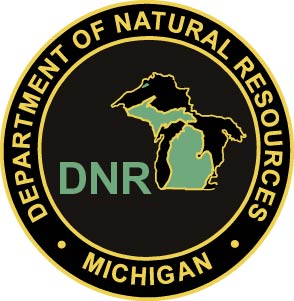
A change designed to bolster funding for state forest recreation programs and provide better, more coordinated management of all state-administered campsites and non-motorized pathways was approved at the March 8 Natural Resources Commission meeting.
Department of Natural Resources Director Rodney Stokes signed a land use order, effective immediately, that classifies state forest campgrounds and non-motorized pathways as state recreation areas. It requires campers using state forest campgrounds and persons using the state’s non-motorized trails and pathways to have a valid Michigan Recreation Passport on their vehicle.
In January, a reorganization of the DNR’s former Forest Management Division resulted in the transfer of state forest recreation programs to the DNR’s Parks and Recreation Division so that all campgrounds and recreation programs of the Department would be managed by one division.
Since the Recreation Passport was adopted in 2010, it has only been required to enter a state park, recreation area or state-administered boat launch fee site. By requiring the Recreation Passport at state forest campgrounds and non-motorized pathway parking areas, the DNR hopes to increase sales of the Recreation Passport and provide more funding for state forest-based recreation programs.
“We intend to keep all state forest campgrounds open and available for campers,” said Ron Olson, chief of the DNR’s Parks and Recreation Division. “The days of closing state forest campgrounds are over. During this transition, we will raise awareness of the Recreation Passport requirement for state forest campgrounds and non-motorized pathway parking areas, and put those funds back into maintenance and operations of state forest recreation programs.”
The Recreation Passport replaced motor vehicle permits for entry into Michigan state parks, recreation areas and state-administered boating access fee sites. This new way to fund Michigan’s outdoor recreation opportunities also helps to preserve state forest campgrounds, trails, and historic and cultural sites in state parks, and provides park development grants to local communities.
Enforcement of the Recreation Passport at state forest campgrounds and non-motorized pathway parking areas will focus on notification of the change. Visitors who do not have the Recreation Passport will be given the opportunity, without penalty, to secure one for the first year.
Michigan residents can purchase the Recreation Passport ($10 for motor vehicles; $5 for motorcycles) by checking “YES” on their license plate renewal forms, or at any state park or recreation area. To learn more about the Recreation Passport, visit www.michigan.gov/recreationpassport, or call 517-241-7275.

 Your Privacy Choices
Your Privacy Choices
 The
The